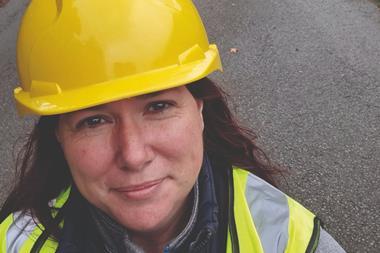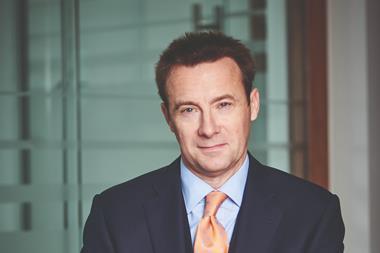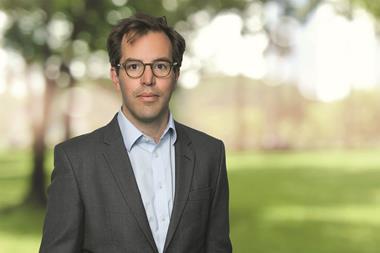The cancellation of the annual EXPO Real trade show in Munich just two days before the event, coming so soon after MIPIM’s announcement that it is moving from its hallowed March slot to June, caused consternation and the realisation that it is unlikely that any of our real estate conferences and trade shows will be taking place before spring 2021.

Fortunately we have some excellent digital real estate events coming up to sustain us. I look forward to chairing a digital session at the Drastic Summit, Canada’s upcoming real estate technology event. Along with my transatlantic panellists, Caleb Parker of Workbold (London), Annie Rinker Director, Office of Innovation at Hines (Houston, Texas) and Dave Cairns, co-founder of CBRE Forward (Toronto, Canada) we will debate the importance of service to the future of offices. It will be interesting to see if views differ on either side of the Atlantic. I’m delighted to see that a number of fellow Brits are also starring in the Drastic Summit, including Antony Slumbers and James Dearsley. During one of our twitter exchanges on the importance of air quality, Anthony trailed that his opening talk at the Summit will discuss in detail the importance of air quality as a ‘flywheel of adoption for proptech’ and the fact that bad environmental conditions equal value destruction. So, tune into the Drastic Summit which runs from the 19 to the 21October. The twitter exchange on air quality was triggered by Reuters reporting that ‘a Japanese supercomputer showed that humidity can have a large effect on the dispersion of virus particles, pointing to heightened coronavirus contagion risks in dry, indoor conditions during the winter months’. This led me to comment that in my podcast with air quality expert Raefer Wallis, he was clear that the data has been around for years but ‘the real estate industry generally has been very much asleep at the wheel’. He also commented that it requires a pandemic to get people to respond. If you haven’t already heard it, it is worth having a listen to understand that viruses are airborne and that they thrive in dry cold conditions. He also has some useful insights into air filtration on planes: https://podcasts.apple.com/us/podcast/raeferwallis/id1440982342?i=1000481737358
And talking of air travel, it has been reported that an Icelandic volcano that caused hundreds of flights to be cancelled when it erupted nine years ago is on the verge of erupting again. The ash cloud caused massive disruption in 2011. I for one remember the inconvenience of having to be driven from the Swiss Alps to London because all flights were grounded. Another ash cloud would certainly be the icing on the cake for 2020.

In a recent speech to the United Nations Forum of Mayors in Geneva, eminent architect Sir Norman Foster told his audience that he believes the current pandemic will not have a long-term impact on cities but will accelerate current trends of change that were already apparent before the pandemic. He compared the current pandemic with previous crises that have impacted cities, and which he said led to improvements in building standards and health-driven architecture. As an example he quoted The Great Fire of London in 1666 which he said created Building Codes that led to fireproof brick construction. Let’s hope there will indeed be some positives for London out of this pandemic.
With so much soul searching on the future of London, and Foster’s reference to the acceleration of pre-existing trends, I thought it would be useful to take a look back to the Big Think on the Future of London, a series of linked roundtable debates which Mishcon de Reya and Patricia Brown’s Central launched with Property Week in autumn 2012. Giles Barrie, then editor of Property Week, described it as ‘a completely refreshing look at the future of London’, and that it certainly was! The Big Think gathered thought leaders, developers, politicians and millennials to discuss what the changing trends meant for the future of London. The glimpses of magenta hair and the occasional gold cloak indicated that this was not the usual real estate crowd!
Looking back, it seems we were prescient in drawing out the themes and discussions about the future of London that others are only looking at now. The Big Think debates chaired by Patricia Brown identified that London’s economy had been subtly rebalancing to compensate for the downturn in financial services. The creative industries along with the software and telecoms sectors had flourished and were fuelling London’s economic growth. Even back then, those employed in these dynamic sectors had already developed a very different relationship with the city, choosing to commute by bike rather than car, choosing to be part of the gig economy with short-term contracts, rather than jobs for life. Their working lives already spanned the real and virtual worlds. The sharing economy had led to the rise of Airbnb. One of the debates was devoted to looking at how to solve London’s housing crisis. Whilst the creative industries had prospered, the costs of renting or buying a London home had rocketed. Generation rent participants talked about negative experiences of renting in London. A theme was whether renting was just a “cyclical conversation”. Urban Splash’s Tom Bloxham, pointed out at the time that the challenge for the industry was to provide both. This is still the challenge, but eight years on the build to rent sector has gained traction and we now have the growth of off-site construction. Maybe it’s time to reconvene The Big Think on the Future of London to discuss where we go now.
In another example of circularity, it has been announced that The We Company, which was formerly known as WeWork, will be re-rebranding to WeWork, perhaps recognising that it is in the real estate rather than the tech business. Despite its previous name change, it has to be said that most carried on calling the company WeWork.
Finally, if you are wondering how to fill your free time as restrictions on socialising begin to bite, thank you to Vogue for during attention to a novel form of art. Toast art to be exact. During lockdown many of us developed new skills but Japanese artist Manami Sasaki has invented toast art. Her creations are inspired by artists, cartoons and comic books and of course she posts photos of her ‘grammable’ creations on Instagram. Each takes some three hours to make and I’m not entirely sure if she then consumes them. I reckon that must be difficult to do, judging by my inability to bite into my Mishcon 25th Anniversary cake, because it was a work of art.
































No comments yet